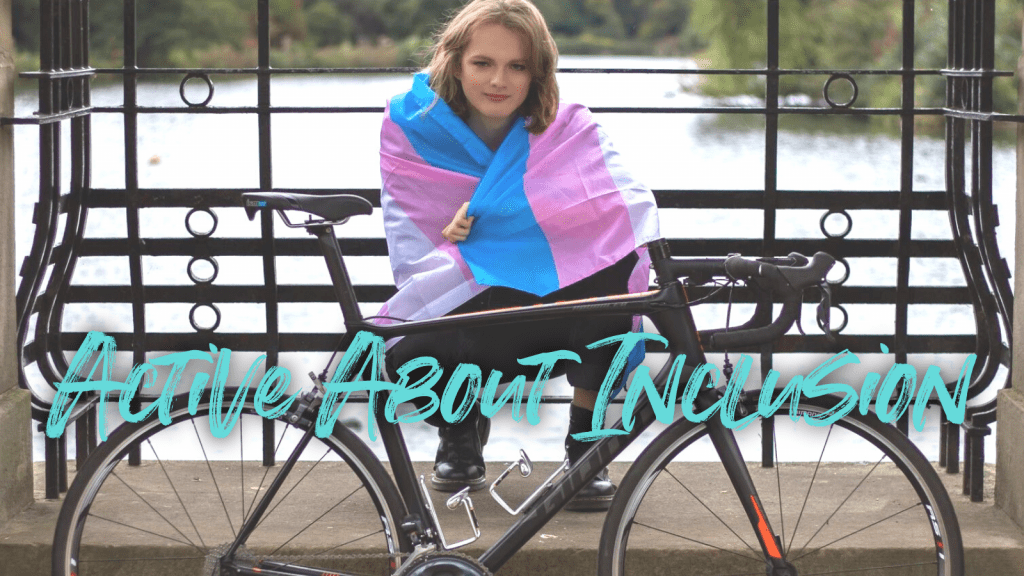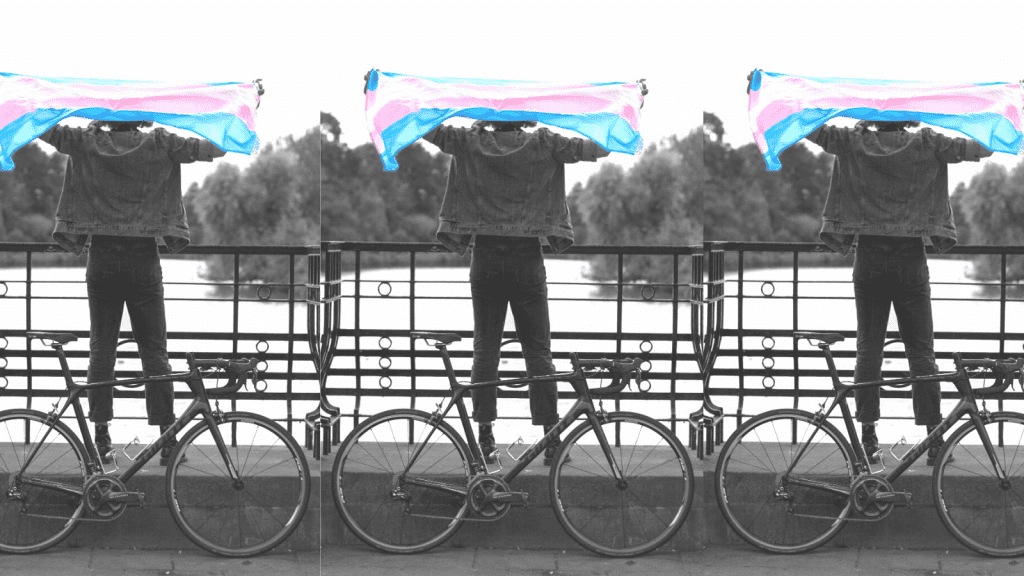
When I was 8 my family moved to Wales and most weekends we’d go for walks over the mountains, or scenic bike rides. I think I’ve always been a sporty person and I always loved being outside, taking the dogs for a walk or going down to the beach to go body boarding.
I’m 20 now but when I was 10 I really wasn’t very good at sport in school, it was always rugby and football and I never clicked with them. Those were the sports that were forced on me, the stereotypically masculine ones. I know sports aren’t gendered, but I always wished I was doing something else.

For me, cycling is amazing! The freedom I feel when I’m out on my bike with my mind running free, it’s liberating. You see such breathtaking places and it’s a sense of belonging that comes with being part of a team.
When I first started cycling, throughout my teens, I never considered it to be possible to transition in sport. I became increasingly aware of my gender and thought ‘this isn’t something sport can accept.’ That’s just how sport was, and I think that’s what kept me in the closet. I see the sporting world as being 10 or 15 years behind the rest of society, it’s so traditional and set in their ways.
There needs to be a much more accepting environment; having trans role models and seeing people like you succeed is a big deal. It’s something people always say! Policy is a massive thing too, they need to actually have trans and non-binary policies for adults and under 18’s and that’s why I love the new Mermaids Sport: Active About Inclusion project.
When I was first thinking of transitioning this time last year, British Cycling didn’t have a trans policy, so I had no idea what to do and it was just awful. A few other sporting bodies did have policies and I felt like if I was just on those teams instead things would’ve been easier for me. British Cycling have now introduced a trans policy but only for over 18’s, so governing bodies definitely need to get better at supporting young people. Gender Identity needs to be a protected characteristic in all sport policies.
It’s just about creating a more positive environment. Support people who want to use their correct facilities, provide private cubicles for everyone so we can all be comfortable and have our privacy.
When it comes to trans people being involved in sport, especially on a grassroots level, it needs to be based on self-identification and there should be more mixed teams. For elite sport sport, trans policies need to be agreed and in place. The most important thing in competitive, low level sport is removing barriers and emphasising inclusion instead of exclusion – increasing participation has to be the goal.

To young trans and nonbinary people who want to get involved, I know things are hard but try not to be dissuaded by the outside world. Being active makes you feel so much better, just being outside and active can make a world of difference to your mental health. Hopefully sport can be something you can use as an outlet, and can be a really useful thing to put your energy into.
If you’ve been inspired by Emily’s story, you might like to donate directly to the #ActiveAboutInclusion project.
